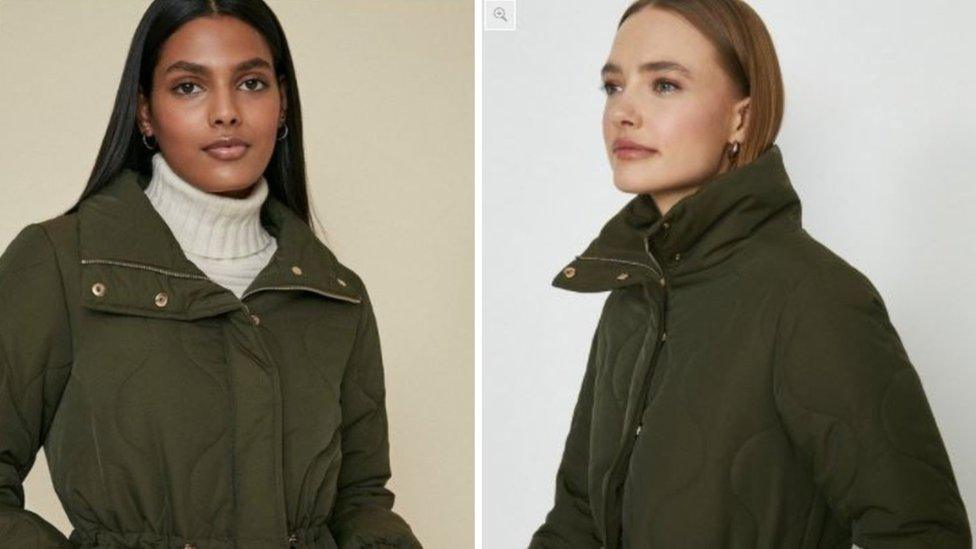Boohoo sales surge as going-out clothes replace athleisure
- Published

Rising demand for dresses and going-out wear have boosted sales at online fashion chain Boohoo as shoppers shifted away from athleisure clothing.
Revenues jumped by 32% in the three months to the end of May to £486.1m.
Boohoo, which has faced scrutiny over working conditions at its suppliers, also said it had now signed up to a forensic supply chain initiative to ensure high standards.
It also said it planned to publish a global supplier list in September.
Growth continues
Boohoo, along with other online retailers, saw sales boom last year as shoppers turned to the internet amid the coronavirus pandemic.
Sales have continued to grow strongly this year, helped by the launch of Boohoo's new Debenhams digital department store in April, whose lines include fashion, beauty and homewares.
Boohoo purchased Debenhams' brand and website for £55m in January after the department store chain fell into administration.
Sales were also boosted by the integration of the Dorothy Perkins, Wallis and Burton brands onto the company's platform after it bought them from Arcadia administrators for £25.2m.
Revenues in the UK rose 50% over the period, as the reopening of High Street shops failed to dampen online activity, while US sales increased 43%. However, sales in the rest of Europe fell 14% and in the rest of the world dropped 15%.
"I am delighted with our performance in the first quarter, particularly as it was always going to be challenging to produce strong growth rates on last year, when lockdowns around the globe drove such high traffic to online retailers," said John Lyttle, Boohoo's chief executive.
Supply chain review
In July last year, a report alleged that staff working for a firm in Leicester that supplied Boohoo were earning less than the minimum wage amid unsafe working conditions.
Subsequently, an independent review into the online retailer concluded that there were "many failings" in the way Boohoo managed its supply chain.

In an attempt to improve its reputation, Boohoo has now agreed to sign up to a forensic supply chain initiative called Fast Forward, which already has members such as online clothing rival Asos and M&S.
Fast Forward, established in 2014, aims to uncover audit evasion and hidden exploitation, including forced labour.
The overhaul of its supply chain is being monitored by advisory firm KPMG, while retired judge Sir Brian Leveson is leading an independent review into Boohoo's supply chain practices.
In a report published on Tuesday, Sir Brian said that Boohoo had taken the recommendations "extremely seriously", and that the company's due diligence may now go further than some of its competitors.
The group has made a number of changes, including introducing stricter criteria for new suppliers. Boohoo executives have confirmed they will publish a global supplier list in September, and continue to review their entire manufacturing supplier base.
Boohoo's co-founders, Mahmud Kamani and Carol Kane, said: "As a group we are on track to meet all of the commitments that we set out last year and we remain committed to setting the bar, to drive measurable and sustainable change."
Sophie Lund-Yates, equity analyst at Hargreaves Lansdown, said: "It's hard not to be impressed by the work that's been done on the supply chain and compliance issues.
"The general sense is that Boohoo is genuinely committed to sorting itself out. The challenge from here is ensuring this step-change in thinking is embedded everywhere in a new business culture. That's a notoriously difficult ask."
Related topics
- Published8 April 2021

- Published25 March 2021
